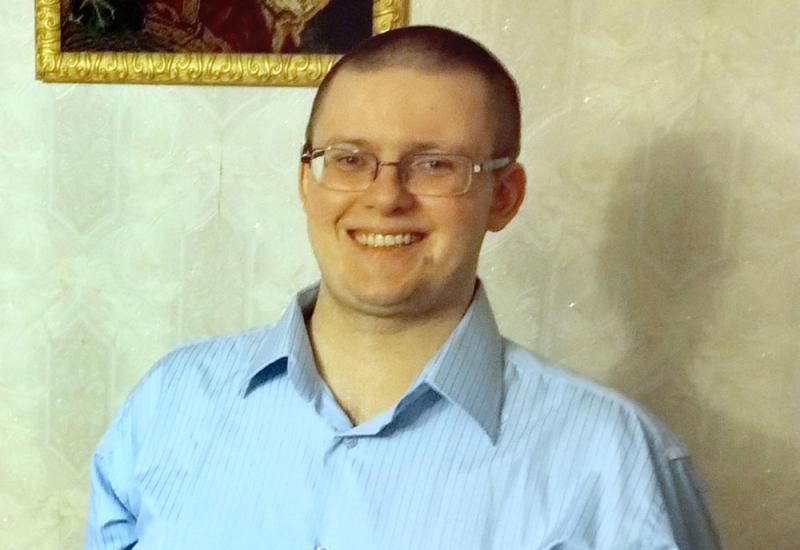The widespread use of computers in all kinds of activities and the constant increase in their computing power require a significant amount of parallel and distributed computing. The Department of Computer Science at the FIPT conducts important theoretical and applied research in the field of creating high-performance parallel computing systems.
Alongside the older generation of scientists, younger ones are confidently taking over. They are just as enthusiastic and inquisitive as their mentors were in their time, who created and led the first specialized department of this profile in Ukraine, trained thousands of domestic and hundreds of foreign specialists, announced their achievements to the international community, and are now successfully preparing their scientific successors. Among the young researchers who successfully work under the guidance of the department's veteran professor, Heorhii Lutskyi, in the area of "High Performance Parallel Computing Systems and Networks" is a graduate student, Oleksandr Honcharenko. According to his colleagues, he belongs to the category of scientists who immediately accepted computer technology as a kind of magical world, where working is both a hobby and a game.
Therefore, the student began researching in his chosen field as a freshman. His research interests are related to such fundamental issues as performance, fault tolerance, and efficiency of computer systems. "Oleksandr joined our research group a long time ago and became an integral part of it, showing his talents as a natural scientist," says his mentor. "He has done a lot of research on the subject of the department, both independently and in collaboration with other scientists, and their results have become the basis for the preparation of relevant publications. By the way," he continues, "the results of Oleksandr's work were published in a Scopus publication, and he has 23 publications to date.
The young scientist's current work concerns methods and tools for improving the efficiency of scalable high-performance computing systems. In particular, he proposed a number of new approaches to topological synthesis. Now the subject of research is not only topology and fault tolerance, but also other areas, such as parallel architecture used at the node level.
In order to provide state support for the country's important developments, the young researcher Oleksandr Honcharenko was awarded an academic scholarship by the President of Ukraine.
"I chose the specialty of computer engineer because at school I was always interested in how a computer works. Like all children, I liked computer games, but they constantly made me think about the inner workings of that "black box" under the desk," the scholarship holder says. "At some point, I wanted to learn everything I could about this box, to understand how it was organized in various aspects, from basic hardware and algorithms to artificial intelligence and supercomputers. This curiosity led me first to study at FIOT, and then to real scientific research."
In general, Oleksandr is a man of diverse interests and abilities. "I'm interested in fiction," he says, "usually in the genre of science fiction or fantasy, less often in horror and mysticism. I also like mythology and philosophy. I hope to write a book someday. I have made attempts at writing, I have the interest and talent for it, but I plan to take it seriously after graduate school: to motivate myself, I promised myself that I would not start writing 'fiction' until I finish my dissertation."
Among other things, the young man studied music: he graduated from music school, mastered keyboard instruments, and shared his skills with the audience on stage. But after entering the Igor Sikorsky Kyiv Polytechnic Institute, he had to give up this hobby: his studies and research work consumed all his time. So, his musical preferences have quietly faded away and he expects that in the future Oleksandr will definitely return to them.
No one will be surprised by Oleksandr's passion for tennis, to which he also paid tribute at one time, but which is also in the past. But the young man's culinary skills can puzzle many people. In secret, his family usually prepares delicacies for the holidays together: they experiment, improve recipes, adding new ingredients and their own fantasies, creating a kind of family "culinary notebook." "And even here, the scientific approach is very useful," the student assures with a smile.
Professor Heorhii Lutskyi speaks of him with undisguised pride: "As a successful young scientist, Oleksandr Honcharenko motivates his classmates (he was the group leader) and other students. Thanks to people like him, today we have a wave of talented graduate students, most of whom have already made certain scientific achievements in their subject area." So let waves of talented undergraduate and graduate students join the FIPT and the Department of Computer Science. Here they will be taught and introduced to the world of science fiction - computer science and AI.

